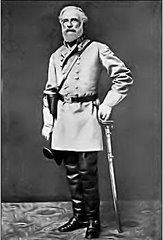Many seeker-friendly church services give us a sermon that ends something like this: “If there is anyone here who has not accepted Christ, you may do so now. Every head bowed and every eye closed, raise your hand if you want to accept Christ.” There is a place for this language and it is great if it leads someone to Christ. But I’m not for sure this is what the purpose of a sermon is.
Many people get scared off by the word liturgy because it seems to replace the heart of Christian worship with text and empty recitations. Certainly, the heart of worship should not be seen as meaningless, and certainly a passionate charismatic worshipper worships God more truly than a Reformed worshipper going through the motions of worship with no real meaning or connection. But I also believe that nearly every church has some form of liturgy, in the sense of order to worship. The question becomes how deep, meaningful, relevant, and ultimately, Biblically sound the liturgy is.
While faithfully attending my church Trinity Presbyterian Church (CREC), I have been privileged to see other church services from other churches, primarily Church of the Highlands, where I go with some friends Sunday evenings. It is nice to see the worship services of other local churches who aim to lift high the cross. I don’t expect every church to have the same structure as ours, and that is okay even though I like our order and structure, which makes it both formal and personable. Church of the Highlands is seeker friendly and has done a lot for the Kingdom and I enjoy the sermons by Chris Hodges. But it seems that a lot of these churches end with the “every head bowed every eye closed” style, and despite being aggressive and seeker friendly, I am not sure they do as much for the Kingdom as a deeper liturgical service would.
Both Trinity Presbyterian and Church of the Highlands have an order to the service. Church of the Highlands has about twenty-five minutes of contemporary Christian music, followed by a sermon that always ends in the same seeker friendly way. After this there is offering and the service is pretty much over. Our service goes much deeper in its order and probably exemplifies the Church’s life more fully. We are called into worship. We confess our sins. We have the reading of Scripture and a sermon. We give our tithes and offerings. We confess our faith. We participate in the Lord’s Supper. We are called forth into the world to live out the Great Commission. This becomes more relevant to the Christian life. It is more consistent with God’s covenants He has made with His People. Sermons lead us into applications and ultimately into further communion with Christ by eating at His table. Each layer leads and flows into the next.
We go to Church to be the Church and renew covenant with God. We win the lost by being the Church everywhere else. When a non-believer steps into Church, they should see the Church in covenant with God, not be pressured into “making a decision.” Scripture does not give us much detail on worship services. But it seems the pattern is something like this: someone is converted, they are given the teaching of the Word, and then they eat and fellowship with other believers. Sometimes, yes, they are converted by the preaching of the Word, but once they enter the church, they are given Word and Sacrament (Sacrament follows the preaching).
There is a time to preach and offer salvation to others and it is good to see churches like Church of the Highlands have the heart to do that. And certainly going to church is a place where salvation should be offered. But I don’t think the modern approach and liturgy is always the best way. While these seeker friendly churches probably do a better job than we do at really reaching out to others on a personal level (which should certainly be commended), they often fail more at really keeping faithful Christians who keep covenant with God. Beyond this, non-believers are often more drawn into a deeper and richer liturgical service because they are able to see the richer side of the Christian faith. It grows on them. They don’t feel pressured into anything.
With all of this said, I wish the Church could ultimately become a Church that is seeker friendly and offers salvation to the lost and is good at keeping faithful Christians who mature in the faith. Often churches have one and not the other. But the point of our worship service is not to strategize how we will win the lost, nor is it a place where we even necessarily directly attempt to win the lost. It is where we keep covenant with God. I do think that more Reformed and deeper liturgical services could do better at having more mission trips and really reaching the lost in ways similar to many contemporary seeker-friendly churches. I wish seeker-friendly churches would broaden and deeper their worship services into a real place of covenant renewal service for God’s People, to train and equip Christians to be faithful to their King.
What do you think?
God bless the Church
God bless America
March 27, 2009
Ryan Hampton
Wednesday, April 8, 2009
Subscribe to:
Posts (Atom)









